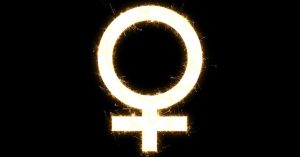
EMPIRICISM
Adrian Johnston
Before addressing Meillassoux’s positioning vis-à-vis empiricism proper as an epistemological orientation in philosophy, I should say a few words about his relations with things empirical, specifically as per the empirical sciences resting upon a posteriori observation and experimentation. To begin with, Meillassoux, following French philosopher and historian of science Alexandre Koyré, singles out Galileo Galilei of 1623’s ‘The Assayer’ as the one-and-only father of modern science. On this contentious account of the birth of scientific modernity, the Galilean distinction between primary and secondary properties of observed objects – the former are mathematisable/formalisable and, therefore, supposedly indicative of the mind-independent real features of natural beings in and of themselves, whereas the latter are non-quantifiable qualities perhaps limited to being phenomena peculiar to the observing mind – is the sole locus of origin for the modern sciences. In other words, Koyré and Meillassoux, like a number of other French thinkers from the mid-twentieth century to the present, such as Louis Althusser, Jacques Lacan and Alain Badiou, among others, believe that the essence of scientificity strictly speaking consists in mathematical or mathematical-style formalisation.
The reaffirmation of this Koyréan thesis apropos scientific modernity already signals Meillassoux’s favouring of a French neo-rationalist epistemology, with Koyré’s narrative completely sidelining and ignoring the 1620 New Organon of British empiricist Francis Bacon. (I will return to the topic of British empiricism shortly.) Bacon’s canonical text lays the foundations of the empirical and experimental approach that has come to be known as ‘the scientific method’. Against Koyré, Meillassoux, et al., Bacon, not to mention Galileo as an observer and experimenter, instead of as a pure mathematician, cannot defensibly be denied the title of (co-) founding figure of modern science. In fact, it would not be unfair to say that Meillassoux’s version of the distinction between primary and secondary qualities – he opens After Finitude with a declaration that he intends to revivify and redeploy this early-modern distinction long ago having fallen out of general philosophical fashion – is Cartesian, rather than Galilean, or, for that matter, Lockean, with John Locke, another British empiricist, also adopting this distinction for his own purposes.
Meillassoux seeks to elaborate a rationalist ontology that is both realist and materialist, one in which knowing subjects truly can know and not simply think material objects qua asubjective things-in-themselves. As per the subtitle of Jean-René Vernes’ Critique of Aleatory Reason (1982), a book influencing the author of After Finitude, Meillassoux too plays ‘Descartes contra Kant’ (more precisely, contra the critical, empiricism-inspired dimensions of Immanuel Kant’s transcendental idealism). Although Meillassoux’s ontology and philosophical modus operandi owes much more to rationalism than empiricism, he partly motivates his system-building endeavours through recourse to the latter as well as to the empirical sciences of nature.
Meillassoux’s arche-fossil argumentative device is extrapolated from those natural sciences studying entities and events presumably predating the genesis of sentient and/or sapient life. On a realist interpretation, these experimental, a posteriori sciences refer to beings enjoying actual existence utterly independent of whatever statuses they might possibly have as objects-qua-correlates of any consciousness whatsoever. Through recourse to such disciplines as cosmology and geology – Meillassoux emphasises that most practising scientists are spontaneous robust realists about their targets of investigation – he aims to manoeuvre Kantian and post-Kantian anti-realists (that is, idealist and phenomenological ‘correlationists’) into confronting a stark binary alternative between either (1) absolutising as eternal and ubiquitous the subjectivity of the correlationist version of the subject-object co-relationship or (2) conceding the sentient and sapient subject and its co-relationships to be non-absolute, namely, to have arisen contingently in space and time as factical geneses surfacing out of asubjective real being an sich. Just as the V.I. Lenin of Materialism and Empirio- Criticism (1908) contends, following Friedrich Engels, that all alternatives to militant realist materialism boil down in the end to the solipsistic subjective idealism of George Berkeley, Meillassoux wields his arche-fossil so as to force various types of correlationists to choose between an anti-realism resting on an absolutised subject (an understandably unpalatable option too implausibly extreme and anti-scientific for most of them) or a realism at least implicit in acknowledging the factical spatio-temporal emergence of thereby de-absolutised subjects.
Apropos empiricism per se as a philosophical orientation, Meillassoux leans heavily on David Hume in particular. More precisely, he proposes an ontological construal of Hume’s problem of induction, a gesture akin to G.W.F. Hegel’s speculative move of ontologising Kant’s critical- epistemological ‘Transcendental Dialectic’. Although Locke and Hume, unlike other British empiricists such as Bacon, Hobbes and Berkeley, exhibit a reluctance to indulge in ontology foreshadowing Kant’s same wariness, Meillassoux insists upon reading Hume’s problem as more than merely epistemological. In fact, Meillassoux goes so far as to claim – this assertion is absolutely central to Meillassouxian ontology – that the problem of induction is already its own solution. In other words, the impossibility of any purported law of nature being deemed via induction to be a necessary connection qua forever-unbreakable rule is a matter of ontological insight rather than epistemological ignorance. The combination of a realist rendition of the inductive-yetmathematised empirical sciences of nature with a related rendition of Hume’s problem of induction leads Meillassoux to advance an ontology (un-)grounded on the core idea of hyper-chaos, namely, the concept of the omnipotent power of a lawless contingency unconstrained by sufficient reasons as the sole necessity operative across the temporal expanse of existence. As hyper-chaotic, the being and beings of Meillassoux’s ontology can, at any time, possibly undergo an unimaginably large number of radical transformations deviating from past and present observed patterns of behaviour. With his system under-construction being based on the foundation of a hyper-chaotic ontology, Meillassoux faces the daunting challenge of defusing the many profound difficulties this Hume-indebted vision generates.

Empiricism by Adrian Johnston is an extract from The Meillassoux Dictionary edited by Peter Gratton and Paul J. Ennis, published by Edinburgh University Press.
Adrian Johnston is Professor of Philosophy at Collin College outside of Dallas, Texas. He is the author of Adventures in Transcendental Materialism: Dialogues with Contemporary Thinkers in the Speculative Realism series published by Edinburgh University Press.




